The road less traveled: Adult Child Estrangement and Reconciliation

Only one thing can keep me away from New Orleans, and that would be my family, especially my children and grandbabies. Furthermore, I have been in Minnesota since April, after a heartbreaking two-year estrangement from my oldest daughter and grandchildren due to her being in an abusive, controlling relationship and cult-like religion. My days without them were filled with the profound feeling of loss, shame, rejection, and guilt. The pain was unbearable.
My daughter has been disabled since birth. I blamed myself for everything she suffered because I was a teen mom and exposed her to my abusive marriage. I am a domestic violence survivor. You couldn’t tell by looking at me because I didn’t have black eyes or bruises, which made me believe I wasn’t being abused. It wasn’t until my young children came to my defense that I realized it. Even though I ended the marriage, the lack of therapy for us, combined with shame, continued the cycle of abuse.
While in Saint Paul, MN, for business, the opportunity presented itself for my daughter to leave the relationship and the religion. She reached out to me to help her reclaim her life. Years of pain and heartache were replaced with joy and forgiveness, but we were far from healed. We needed family therapy to recover from the estrangement and prevent it from happening again. It was the peak of festival season in New Orleans, and Staying would ultimately cause me to lose out on several opportunities in New Orleans. Less to say, I didn’t have to think twice about staying in Minnesota with my children.
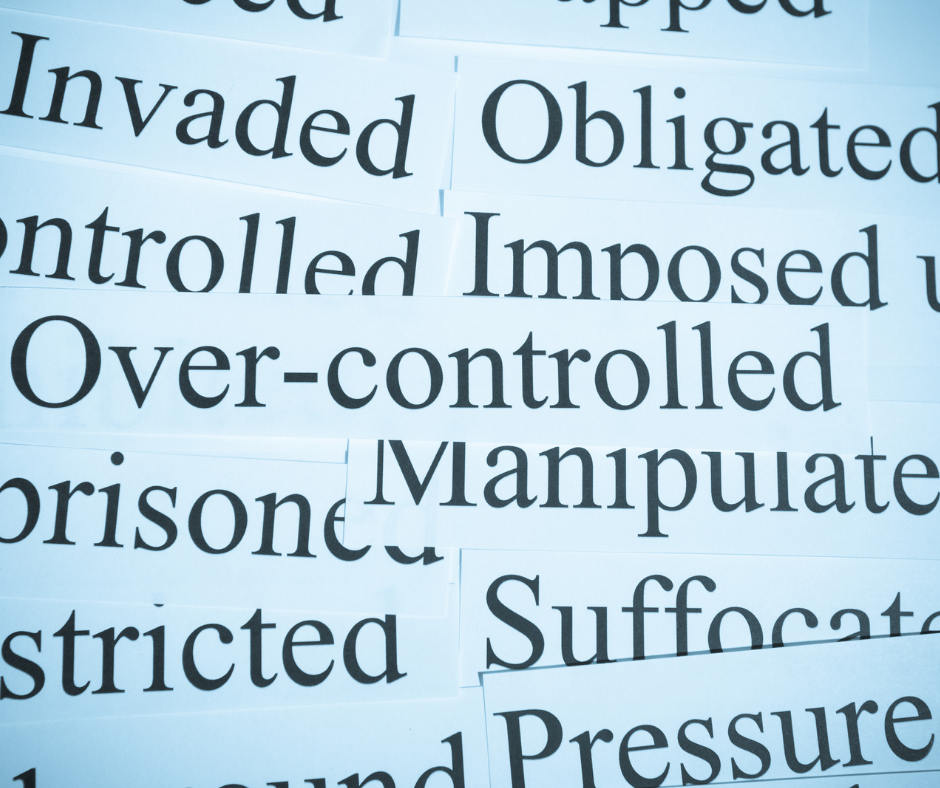
Louisiana Partners In Policy Making

I was worried about everything I had worked so hard to accomplish in New Orleans. Not being present could ruin my career, but I was willing to lose it all to have my daughter and grandchildren back in my life. However, I believe fate and the mothering spirit of New Orleans accomplished many things remotely. I was accepted and graduated from the first Louisiana Partners in Policymaking hybrid class due to Covid. PIP is a national leadership training program for people with developmental disabilities and parents of young children with developmental disabilities.
There was talk about possibly returning to the classroom the weekend I returned to Minnesota. However, the mere dread of dropping out or not being able to complete my PIP assignments ate at my soul. I desperately wanted to learn more about advocacy for disabled people because of my daughter and the horrific treatment of Louisiana’s elderly and disabled residents. The experience taught me that I needed additional skills to advocate for my loved ones, others with special needs, and the elderly. Therefore, I felt it was essential to my loved ones with disabilities that I graduate from PIP.
Louisiana Partners In Policy-Making enabled me to be a better mother and advocate. I have a wealth of new knowledge that will assist me in advocating change for those with developmental disabilities. I look forward to applying the life-changing advocacy and leadership skills I learned in PIP training. As a result, I have the confidence to communicate effectively with elected officials passing laws affecting our loved ones. Unfortunately, some of these legislators do not understand the needs, hopes, and dreams of those with disabilities. It’s up to us to share our life’s impact statements that can change public policy in the government for our love. I successfully graduated on July 15th, 2022, in Baton Rouge. I attended virtually.



Before hearing about Partners In Partners in Policy Making or anything relatively close to it, all I knew about advocating for children was my mother’s lioness-like attitude regarding us. She barely had to use her roar to speak up for us. I attempted to find my inner lioness once I became a mother, but it did not come easily. First, I was shy and filled with the guilt of bringing a medically fragile child into this world at such a young age. Second, I was hard on myself and self-conscious because of how others viewed me. I wish I had it in me to speak up for myself at the time, but I did not have the necessary tools to do so. Finally, a life experience would present itself to provoke my inner lioness.
Teenage Mother
I gave birth to my first child at sixteen years old at Charity Hospital. The hospital medical staff made sure to let me know that I was nothing more than a poor, fast ass black teenie bopper with a future destined for projects and welfare. I dreaded visiting my baby because the nurses and doctors depressed me, but I had to endure it for my baby. I could not see my daughter without them drowning my spirit in guilt. I believed it was my fault that my baby girl, Yaya, now thirty-two, was born prematurely. She suffered a brain hemorrhage at birth, developing cerebral palsy, hydrocephalus, and seizure disorder. I had no choice but to stand up for myself and advocate for my baby’s care.
One day, my tiny two-pound baby girl had a bedside procedure. The nurse left fluid-filled syringes, bloody gauze, etc., in her incubator. In addition, she tried to place an IV three times before putting one in her head. I was mad and hurt at the thought of the pain she endured. I thought I would faint, but the rage I felt from knowing they tortured my baby kept me standing. I stood there crying, hot-faced, angry tears until this lovely nurse noticed and came to my daughter’s incubator. She handed me a tissue box and asked if she could do anything for me. All I could say was, “look at how they left my baby!” The nurse followed my eyes, looked down at her, and immediately started wiping dried blood off my baby’s skin. She then removed the soiled pad, syringes, etc., and said, “maybe the nurse had an emergency with another baby. But I’m here now, and I’ll get her all cleaned up for you.”
Her actions helped a bit, but I was still angry. Finally, she asked what else she could do to help me, and I told her I didn’t understand why the nurse would leave her like this and go on lunch break. This incident prompted a Patient Care Advocate to be assigned to our care plan. I learned that Patient Care Advocates informed patients of their rights, responded to queries or complaints, and resolved issues. Having someone assist me in advocating for my child and me made a huge difference, but I still had much to learn.
I was pregnant again within months after giving birth to my first daughter. I gave birth to another premature baby girl. I was so embarrassed and ashamed. Finally, and against my first mind, I decided to give birth at another hospital to avoid being criticized for having another baby before my daughter’s first birthday. I believe this shame cost me her life. However, even though the staff at Charity Hospital were mean to me, the nurses taught me a lot to prepare me to take care of my special needs baby at home.
Being a young mother of a child with special needs was very challenging in New Orleans. I found that the city lacked specialty medical care and services, especially for those on state-funded medical assistance. And If I did find medical care or services, there was a lifelong waiting list, or the insurance denied access. Additionally, I was never informed to apply for my daughter’s medical assistance, WIC, or anything. As a result, she has acquired hundreds of thousands in medical bills since birth. Her father and I worked so she could have medical insurance and pay for baby formula, clothes, etc.
The week before my daughter’s first birthday, she was admitted to Children’s Hospital and would have brain surgery. I befriended another young mom, a few years older than me, whose son had the same diagnosis as my daughter. My new friend connected me with the hospital social worker. The social worker was shocked that we spent nearly a year without resources. My Mama applied for medical assistance, food stamps, SSI Disability, and other services for my daughter. Finally, I was able to quit working the night shift at Shoney’s in the French Quarter and concentrate on motherhood and school.
My heart, soul, and roots live in New Orleans, but life for us at that time was too hard. I tried hard to make a living here but continuously hit brick walls. My love for living in New Orleans meant putting my children’s needs last. My top priority was the need for excellent medical care, in-home service support, and educational programs. If I had the knowledge and the skill set to advocate for myself and my daughters, I would not have left New Orleans in the 90s.
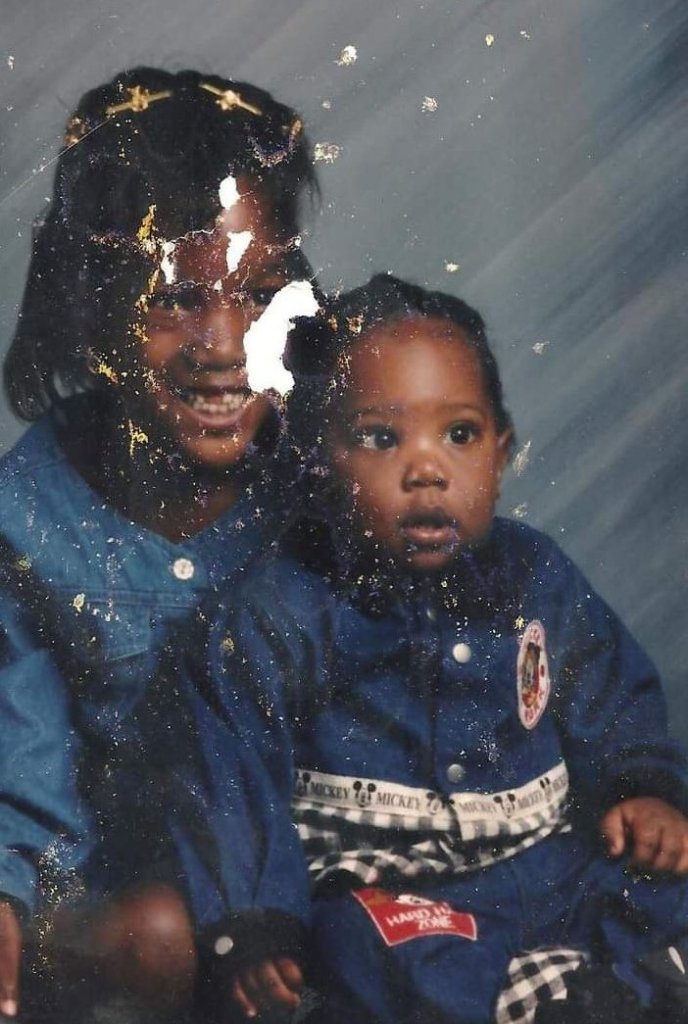
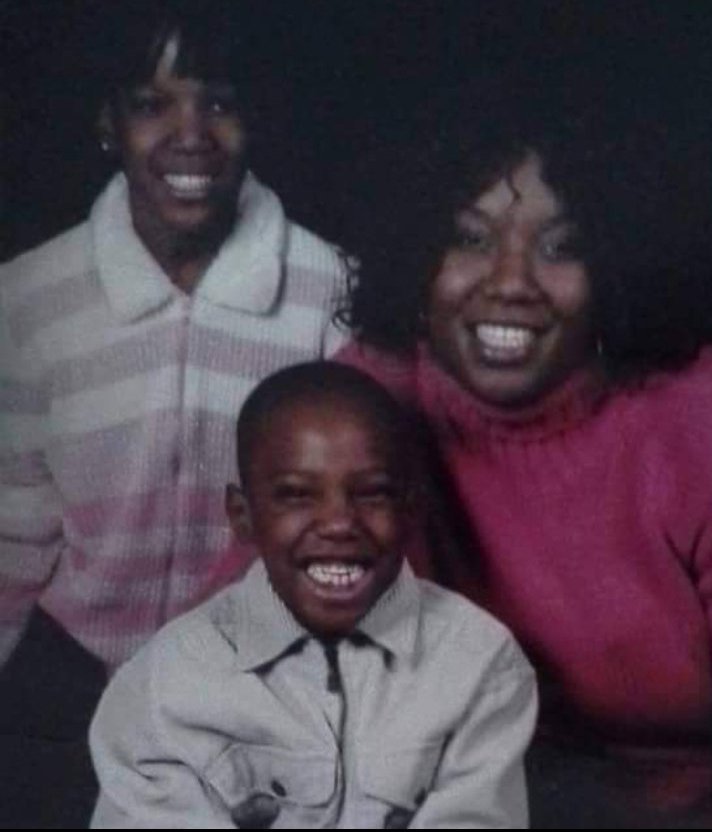

Yaya
Twenty years forward, I have three living children and one deceased. My oldest, Yaya, has hydrocephalus caused at birth due to a brain hemorrhage, mild cerebral palsy, and susceptibility to Intimate Partner Abuse. In her thirty years of life, she had numerous shunt revisions and infections, but she pushed on. She was born before using cranial caps to assist with molding/shaping infants’ heads. So she has a long oval face and head due to being a premie with hydrocephalus. Her head’s long oval shape caused her insecurities from childhood teasing. She had scarring and bald spots from the surgeries, which were easy to cover up, and she wore a bang to prevent being teased. The brain hemorrhage affected the right side of her body, causing her right arm, hand, and leg to be smaller and weaker than the left, and she walked limply. The physical appearance of having a disability affected her more than the disability itself. She refused to tell people she had a medical condition to avoid teasing and having people feel sorry for her. Kids back then were so mean, and it seemed to stem from their parent’s ignorance.
She overcame her self-esteem issues, and her days of bangs were left in high school. My daughter successfully developed transitional and independent living skills as a teen and young adult. These skills enabled her to live independently without a responsible party. However, as with many women, even those without disabilities, there is the issue of subjecting themselves to abusive relationships. Studies from the American Psychological Association show that disabled people with disabilities are twice as likely to experience domestic violence than nondisabled people.
It took nearly two heartbreaking years, but I successfully advocated for her and my grandchildren to get them out of the religion and help her end the relationship. She’s now in therapy, and she and the kids are happy to have their life and family back.
I never in a million years would have thought I would need to advocate for an older child. I imagine life with her as an adult would be supporting her with surgery and her physical health. But instead, I found that advocating in all areas of your adult child’s life, including relationships, does not end.

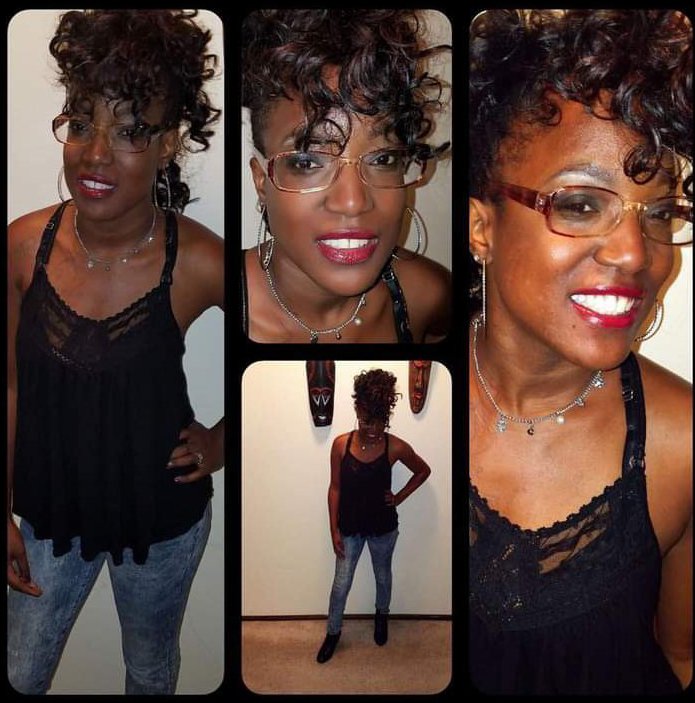
Niyah Jean
My baby Niyah Jean, well, she is not a baby anymore. She recently turned twelve. Niyah has a Brachial Plexus injury, a traumatic injury, and total paralysis of the left shoulder, arm, and hand from a forceps delivery.
I decided to move back home to New Orleans after Niyah was born because her disability was less severe than my older daughter’s. Niyah has a physical disability because she’s self-sufficient and only needs help with ADLs. She’s not on any medication or requires extensive treatments or follow-up. Therefore I imagined finding an excellent orthopedic surgeon and services would be easy. But unfortunately, my move back home was met with disappointment and heartache.
My days were filled with guilt as I struggled to find what I felt was close to the services she had for the first years of her life in Minnesota. In New Orleans, the insurance company denied much-needed medical services, and the specialist she needed to see was outside of the coverage. I loved the care team approach at Gillette Hospital and Clinics in St. Paul, MN. The entire Brachial Plexus Team would see her on the same day, unlike in New Orleans.
Since she was a baby, she has not let anything stop her. It’s been incredible watching how much she can do, given her disability. I’ll be the first to admit that it’s easy to forget that Niyah has a physical disability, as she is the ultimate overcomer. “Can’t” is not in her vocabulary. She has adapted to life early on without much help from therapists or me. If we tried to teach her how to do something, she would do it her way. For example, she couldn’t crawl, but she did a one-arm and leg pull or Lil butt scoot for a bit, then started walking at nine months old. She had some minor issues with dropping things, and there are some two-handed activities that she needs help with, such as tieing her shoe, but she will ask for help or find her way of doing it. She’s a natural athlete and loves running, swimming, biking, basketball, rock climbing, etc.
We moved back to New Orleans during the Mardi Gras season. Niyah was in the first grade and had an IEP implemented by Saint Paul Public Schools in Minnesota. An IEP-Individualized Education Program is a legal document developed for each U.S. public school child who needs special education under United States law. Even though I was warned about the new New Orleans Charter Schools System, I remained hopeful that the school would be able to meet her needs. I thought Charter Schools were on the level of Private Schools, so I was surprised when I was told that the Charter School Experiment in New Orleans was flawed and failing students.
I met a couple of parents and their children during parade season. One couple was in their fifth year of relocating to New Orleans from Washington. They were out with their developmentally delayed son. His wheelchair was decorated as if it was a float. I couldn’t help but tell them how impressed I was with his wheelchair. They were Super Hero Parents in my eyes. I was impressed at how they maneuvered through the pothole-ridden streets of New Orleans with two small children and a special needs eleven-year-old during carnival time.
As we waved and shouted, “Throw Me Something, Mister!” I shared that Niyah had a physical disability and had an IEP, which led to the conversation about the new school system in New Orleans. They told me that most Charter Schools would claim the lack of funding to cover special needs students because they do not receive funding from their school districts. They suggested I research the school before enrolling my child and request an IEP meeting before she started class. And that it was imperative that I not back down on getting in-school support and services. By the time the parade ended, I had a general knowledge of the school system.
Unfortunately, I didn’t do much research on the school because it was so close—a mistake that led to a series of disappointing events. A few days before Niyah started, we had the IEP meeting with the principal, nurse, social worker, and teacher. The principal reassured me that the school could meet Niyah’s needs. I went home feeling relieved that the staff would be educated about her disability and prepared for her to start school. But, boy, was I wrong?
Over the years, her services included Occupational Therapy and adaptive equipment to assist with holding items. Nothing expensive, but little things that made life easier for her, such as a tricky plastic lunch tray or a clipboard so she could write without the paper moving. She was also allotted extra time and assistance with personal care, such as buttoning and zipping clothing. Niyah’s independence made for a simple IEP; the most expensive service would be hiring an Occupational Therapist. Nevertheless, it wasn’t hard for previous schools to meet her needs because she didn’t require one-on-one support. So I didn’t understand why the unnamed New Orleans school missed the mark. Instead, I found that the school lacked reasonable accommodations, adequately trained teachers, and an individualized approach to children’s education.
One day Niyah’s teacher sent home a letter informing me of an Ipad incident and “my child’s nasty thumb-sucking habit .” Niyah was written up, sent to the behavior room, and verbally chastised for dropping a school Ipad for the third time. The letter said that the teacher believed Niyah was intentionally dropping the iPad. And if it were to happen again, she would not be able to use the devices for the rest of the school year. Additionally, She stated that Niyah would not be allowed to use the classroom supplies starting the next day. She would need to bring in her crayons, pencils, etc., to prevent her saliva from being transferred to the items due to her thumb sucking.
I could not believe that the teacher had the nerve to write such an insensitive letter and publicly humiliate and punish my child, punish her. I was beyond pissed off. I called the school and read the awful letter to the principal. I reminded him that Niyah’s IEP addressed that she sucks her thumb due to nerve pain. It also stated that the nurse could administer the prescribed medication for pain if prolonged thumb sucking or Niyah complained of pain. He apologized and said the teacher was unaware of Niyah’s disability or her IEP because it was misplaced. I told him his apology, and the teacher’s reasoning would not suffice. She was out of line for punishing my physically disabled child for dropping an insured school device. To add, she insulted my parenting. The principal scheduled an emergency IEP meeting to ensure that the staff knew Niyah’s needs as if we hadn’t covered this three months before this incident.
In the meeting, I found that Niyah’s IEP seemed to have disappeared, and the services listed in the IEP never started. Only the school secretary, nurse, and principal could recall reading it and were aware of Niyah’s disability. Sadly My six-year-old daughter had to figure out how to adapt to school life independently. Furthermore, she suffered from nerve pain at school for months because a judgemental teacher did not know why she was sucking her thumb.
I threatened to call the School Board, but the principal asked me to allow him time to rectify the situation, which included suspending the teacher and hiring an Occupational Therapist. In addition, Niyah was transferred to a different classroom and assigned a paraprofessional to assist her throughout the day.
It was a start, but I was still hurt and angry at the teacher and the school’s careless actions with Niyah’s IEP. I grew tired of waiting on the school to implement all the services. Supposedly the school found it difficult to find a therapist, which I believe was a lie. In addition, the principal didn’t want to spend the money to hire someone as it would have affected the school’s budget. I was fed up with everything, from the Louisiana Medicaid system and the lack of providers who accepted Medicaid to the lack of in-home support services for children. I felt the only option I had was to bring Niyah back to Minnesota so she could have the best medical care and education.

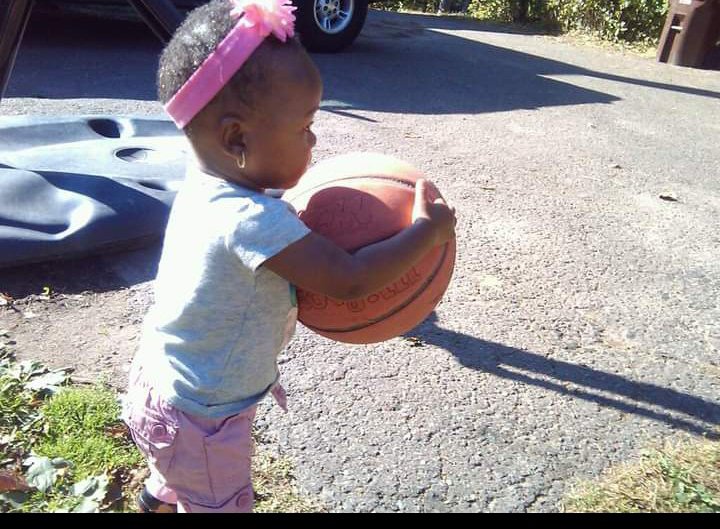

It has been like a catch twenty-two. I thought I had this perfect plan to ensure Niyah would have access to quality health care and education in Minnesota. However, leaving New Orleans was not an option as my career was blossoming, and I loved living in New Orleans. It’s not a great city to raise children, especially those with disabilities. So I figured Niyah would live with my Mama, her grandmother, for the school year. I would travel between the states every two to three months. While in Minnesota, I would work virtually as a freelance writer and continue to grow my brand on social media. And when school was out, Niyah and I would stay in New Orleans.
Unfortunately, my plan didn’t work as I envisioned. I wish I had heard of the PIP training in the 90s as it would have lessened the grey hairs on my head and made a difference in my move back home with Niyah. But it’s better late than never. So I encourage adults with a disability, family members, and caregivers who want to be knowledgeable, confident, and active in advocacy to enroll in your state’s Partners In Policy Making class.
Sources:
https://ncadv.org/blog/posts/domestic-violence-and-people-with-disabilities
https://www.gillettechildrens.org/stories/brachial-plexus-injury